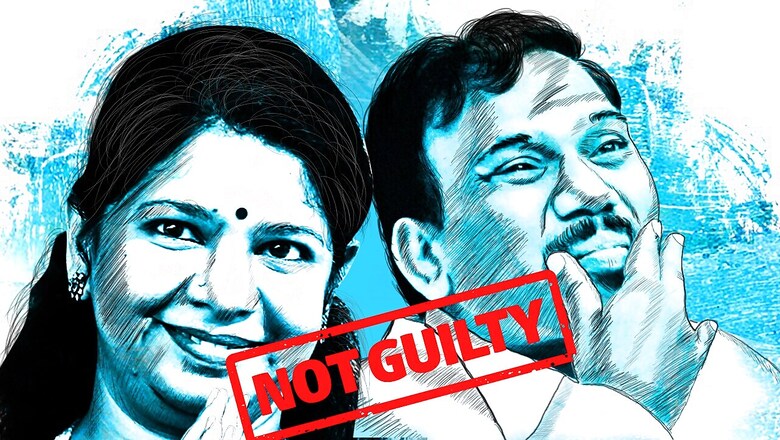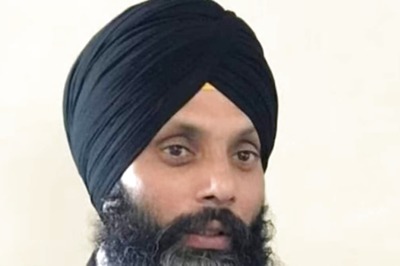
views
The 2G spectrum allocation cases pending before the Special CBI Judge, Patiala House Courts, New Delhi came to a close today vide three separate judgments delivered in the three cases (two by CBI & one by ED), resulting in the acquittal of all the accused. The record of this voluminous, technical and complex case runs into about three four lakh pages.
The said judgment is another testament in recent times of the fact that how public perception is failing the settled principle in our country of one being innocent until proven guilty. The judgment is another example of how the prosecuting agencies are handling cases and how does one undo the damage caused to the accused in the last 7 years.
The Ld. Judge states the following in the lead judgment running into 1552 pages:
“In the beginning, the prosecution started with the case with great enthusiasm and ardour. However, as the case progressed, it became highly cautious and guarded in its attitude making it difficult to find out as to what prosecution wanted to prove. However, by the end, the quality of prosecution totally deteriorated and it became directionless and diffident.”
The first case was registered on 21.10.2009, against unknown officials of Department of Telecommunications (DoT), Government of India, unknown private persons/companies and others for the offences punishable under sections 120B IPC read with 13(2) r/w 13(1)(d) of Prevention of Corruption Act, 1988, on allegations of criminal conspiracy and criminal misconduct, in respect of allotment of Letters of Intent (LoI), Unified Access Services (UAS) Licences and spectrum by the Department of Telecommunication.
The second case filed by CBI against corporate houses.
The third case is a complaint case filed by Joint Director, Directorate of Enforcement, New Delhi, under Section 45 of the Prevention of MoneyLaundering Act 2002 (hereinafter to be referred as “the Act”) on 25.04.2014 for the commission of the offence of moneylaundering, as defined in Section 3 and punishable under Section 4 of the Act, by the accused.
The present article deals with some of the aspects of the judgment passed in the first case.
Following allegations were levelled in the FIR :
(a) The entry fee for the new pan India UAS licences in the year 2008 was the same as the year 2001 and licenses in 2008 were issued on firstcome firstserved basis without any competitive bidding.
(b) Applications received up to 25.09.2007 only were considered, which was also against the recommendations of Telecom Regulatory Authority of India (TRAI) that no cap should be placed on the number of Access Service Providers in any service area.
(c) Even FirstCome FirstServed policy was implemented by the DOT in a manner which resulted into wrongful gain to certain companies and that suspect officials of DoT had selectively leaked the information to some of the applicants regarding the date of issuance of letter of intent on 10.01.2008. Arbitrary condition was incorporated that whosoever deposits the fees (as per conditions in Letters of Intent, i.e. LOIs) first, would be the first to get license, thus some of the applicants, who had this prior information, were ready with the amount and they were able to deposit the fee earlier than others. Thus, favour was allegedly shown to some applicants by way of leaking the information about the date of issuance of letter of intent.
(d) Although, the FDI limit was increased from 49 to 74% in December, 2005, but there was no lockin period or restriction imposed on sale of equity or issuance of additional equity. As a result of this estimated loss to Government by grant of licences on pro rata basis, the for all 122 UAS Licences issued in 2008 was more than Rs. 22000 Crore.
None of the evidence offered by the Prosecution and their arguments were accepted by the Ld. Special Judge. The detailed thorough judgment deals with multiple instances of the Prosecution failing to proof its case.
One such example is the following:
“Not only this, the instant case was registered on 21.10.2009. Sh. Aseervatham Achary remained Additional PS to Sh. A. Raja till 29.10.2008. Naturally, he is an important witness and is expected to know many facts. However, his statement under Section 161 CrPC was recorded by the IO on 24.03.2011, after a long gap and only about a week before filing the charge sheet and the witness suddenly became a goldmine of information. This long delay in recording his statement alone is good enough to destroy the evidentary value of his deposition. Furthermore, if Sh. Shahid Balwa and Sh. Vinod Goenka were in constant touch with Sh. A. Raja in the Ministry of Environment and Forests, the prosecution could have easily cited any other witness also from that Ministry to prove their association.”
Another example of the incorrect facts being recorded in the chargesheet as held by the Ld. Special Judge is following:
“I may add that many facts recorded in the charge sheet are factually incorrect, like Finance Secretary strongly recommending revision of entry fee, deletion of a clause of draft LOI by Sh. A. Raja, Recommendations of TRAI for revision of entry fee etc. The end result of the above discussion is that, I have absolutely no hesitation in holding that the prosecution has miserably failed to prove any charge against any of the accused, made in its well choreographed charge sheet”
The Ld. Special Judge records that the charge sheet of the case is based mainly on misreading, selective reading, nonreading and out of context reading of the official record. Further, it is based on some oral statements made by the witnesses during investigation, which the witnesses have not owned up in the witnessbox. Lastly, if statements were made orally by the witnesses, the same were contrary to the official record and thus, not acceptable in law.
The Ld. Special Judge has in detail discussed the conduct of the prosecution. Furthermore, as a testament to the fact that no legally admissible evidence was brought before the Court, the Ld. Special Judge records the following:
“I may also add that for the last about seven years, on all working days, summer vacation included, I religiously sat in the open Court from 10 AM to 5 PM, awaiting for someone with some legally admissible evidence in his possession, but all in vain. Not a single soul turned up. This indicates that everybody was going by public perception created by rumour, gossip and speculation. However, public perception has no place in judicial proceedings.”
(Author - Mohit Paul, Advocate-on-Record, Supreme Court of India)




















Comments
0 comment